Major Airlines Are Canceling Tons of Flights Right Now—Here’s Why
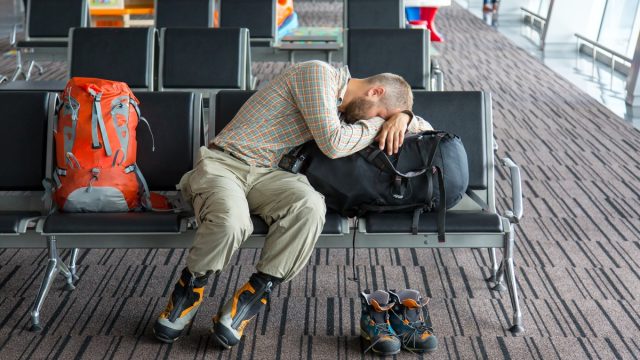
Talk about a travel nightmare: Southwest Airlines canceled 1,800 flights over the weekend, stranding travelers and creating chaos in airport terminals and for customer service agents across the country, CNBC reports. And although Southwest’s cancellations were the most widespread across the industry, it was far from the only airline nixing flights from its schedule. So why did it happen? Here’s what we know, and what you should be aware of if you have travel plans in the coming months (yes, holiday flights included).
Southwest blamed bad weather and staffing issues for its many canceled flights.

As passengers struggled to regroup, Southwest blamed its widespread outage on the combined obstacles of bad weather, issues with air traffic control (ATC), and its own short staffing.
“I know this is incredibly difficult for all of you, and our customers are not happy,” Alan Kasher executive vice president of daily flight operations told staff, as reported by CNBC. “Although we were staffed for the weekend, we could not anticipate the significant disruption that was created from unexpected ATC issues and bad weather across our Florida stations.”
Over the weekend, Southwest apologized to travelers for the long waits they experienced in dealing with customer service and said they expected things would get back to normal by Sunday. Unfortunately, the situation only got worse. Crew members found themselves without hotel rooms and butting up against working limits outlined in their contracts. After canceling over 800 flights on Saturday, Southwest canceled more than 1,000 additional flights on Sunday alone.
RELATED: Major Airlines Are Banning This One Thing on All Flights.
The Federal Aviation Administration (FAA) acknowledged that there were some issues.
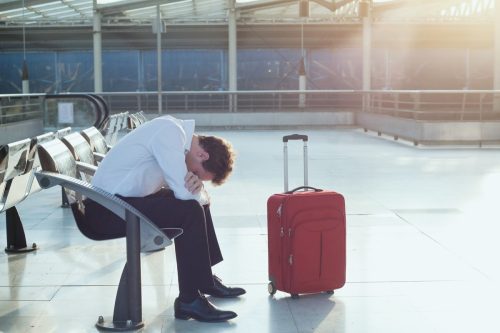
The FAA acknowledged there were a few hours on Friday afternoon when flight delays could be attributed to extreme weather and staffing problems at Jacksonville Air Route Traffic Control Center, which controls airspace in five states: Alabama, Georgia, Florida, North Carolina, and South Carolina. However, the agency said that there were no issues on its radar after that relatively brief period.
“No FAA air traffic staffing shortages have been reported since Friday,” the FAA said in a statement via Twitter. “Some airlines continue to experience scheduling challenges due to aircraft and crews being out of place. Please contact the airlines for details about current flight schedules.”
Southwest canceled 28 percent of its flights, compared to only 2 to 4 percent among other airlines.
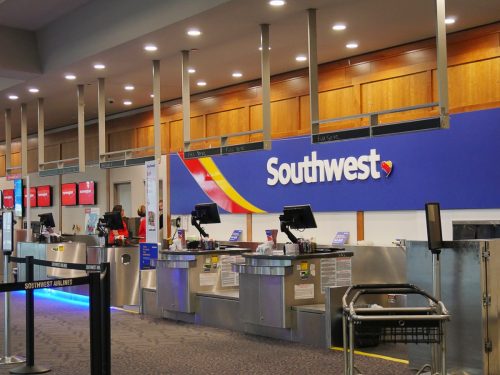
While other airlines cut flights, they had relatively fewer cancellations. Southwest canceled more than one in every four flights on its schedule, 28 percent, to be exact. In comparison, American canceled just 66 fights (one in 50 on its schedule), and Spirit canceled 32 flights (one in 25), CNBC reports.
Southwest Airlines Pilots Association, Southwest pilots’ labor union, said the issue was due to poor planning on the airline’s part. “Our pilots will continue to overcome SWA management’s poor planning, as well as any external operational challenges, and remain the most productive pilots in the world,” it said, according to NBC News. “Make no mistake about it—due to months of staffing issues and inefficient scheduling practices we have been operating at a higher than normal operational risk,” the union’s safety committee wrote to members on Saturday.
They also noted that reports of fatigue among pilots, an issue that requires them not to fly, are triple the normal rates.
RELATED: For more up-to-date information, sign up for our daily newsletter.
Staffing continues to be an issue for airlines.
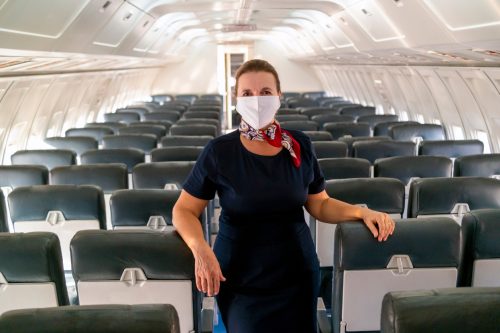
The staffing shortage across the airline industry—indeed across many industries—has been widely reported. When the pandemic hit, airlines encouraged thousands of employees to take leave or accept buyouts, but demand for travel roared back quickly.
This disconnect in circumstances led to widespread cancellations and delays this summer, too. Airlines trimmed some flights from their schedule to sidestep even more disruption. Back in July, Senator Maria Cantwell of Washington, who chairs the Senate Commerce Committee, sent letters to the CEOS of American, Southwest, Delta, JetBlue, Republic, and Allegiant airlines expressing her concern that staffing shortages were leading to delayed and canceled flights. She blamed the airlines for mismanaging their workforce and said they “failed to meet the intent of tax payer funding and prepare for the surge in travel that we are now witnessing,” according to USA Today.
Even months later, airlines are still struggling to hire fast enough to get back up to speed amid a wild job market.
Air travel is going to continue to be unpredictable, especially into the holidays.
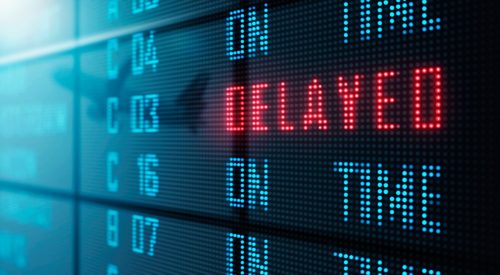
Kasher told CNBC that while Southwest has made “schedule adjustments leading into the fall, our route system has not fully recovered—that will take time.” He also explained that Southwest doesn’t have the “interline agreements” that large airlines have that allow them to rebook stranded travelers on other airlines more easily.
So if you are planning to travel for the 2021 holiday season or any time in the coming months, it’s best to pack your patience as airlines regroup from the pandemic and demand continues to surge. “People aren’t going to forgo being home for the holidays for a second year in a row,” Narendra Khatri, principal of travel insurance company Insubuy, told The Washington Post. “Expect airports and flights to be more packed than ever around Thanksgiving and Christmas. This means more flight delays, cancellations, and long layovers.”